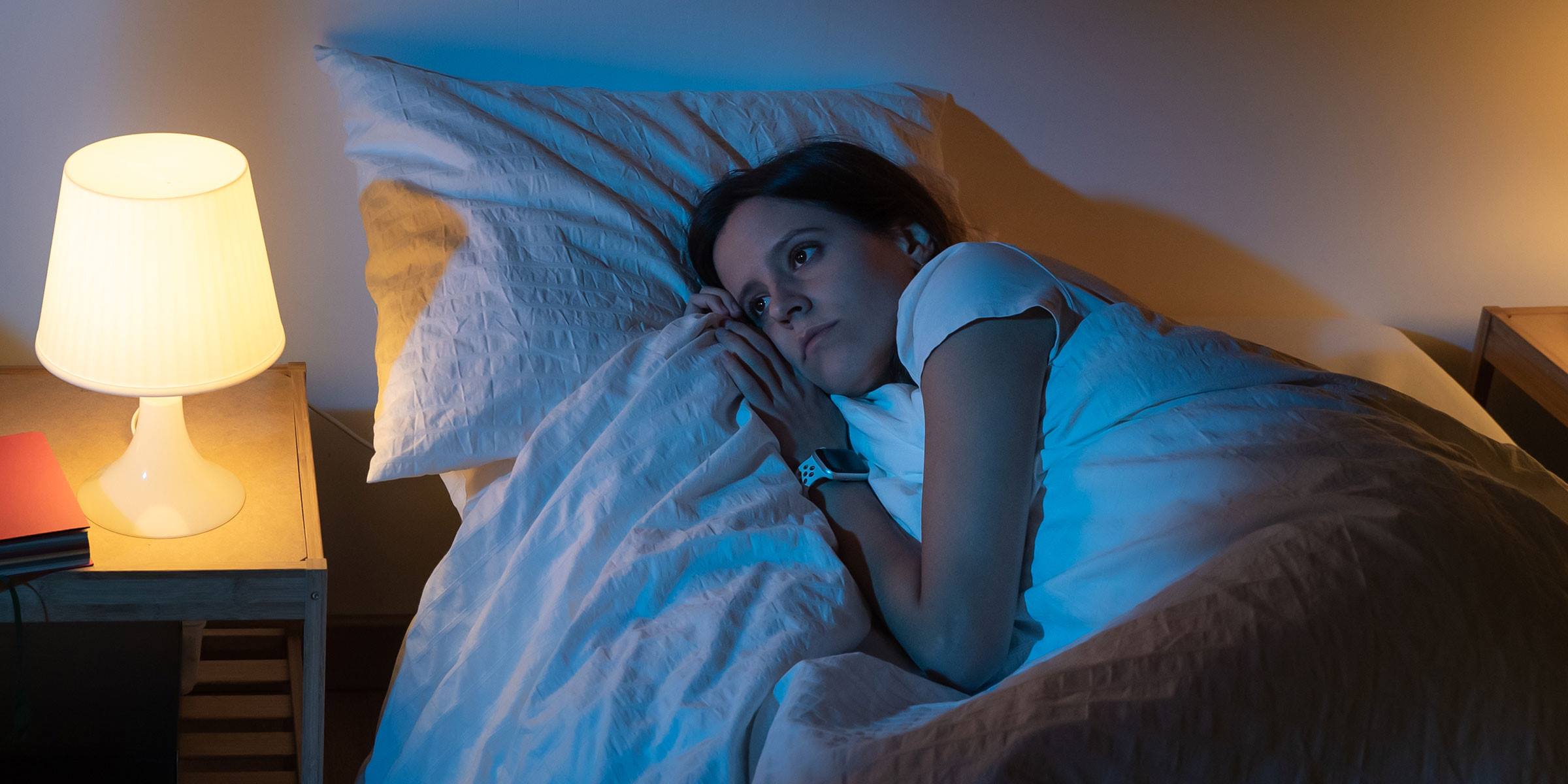

Featured
How Late Can You Workout Before Bed
Published: August 12, 2023
Discover the best time to squeeze in a late-night workout before hitting the sack. Our featured article reveals how late you can workout before bed and still get a good night's sleep.
Introduction
Have you ever wondered if it’s possible to get a workout in before bed without sacrificing your sleep? Many fitness enthusiasts grapple with the dilemma of how late they can exercise without disrupting their precious rest. The timing of your workout can have a significant impact on your sleep quality and overall well-being.
Sleep is a vital aspect of a healthy lifestyle as it allows the body to rest, repair, and recover. Engaging in physical activity is also crucial for maintaining optimal fitness levels. However, there is a common misconception that exercising too close to bedtime can disrupt sleep patterns and make it challenging to fall asleep. In reality, the relationship between late-night workouts and sleep is more nuanced.
While some studies suggest that exercising too close to bedtime may lead to increased alertness and difficulty falling asleep, other research proposes that late-night workouts can actually enhance sleep quality. Understanding the potential effects and factors to consider when exercising before bed can help you strike the right balance between staying active and getting ample rest.
It’s important to note that the impact of late-night workouts on sleep can vary from person to person. Factors such as individual sleep needs, personal tolerance to exercise, and the type of workout performed can all influence how late you can exercise without negatively affecting your sleep. By considering these factors and implementing some helpful strategies, you can optimize your late-night workout routine and enjoy a restful night’s sleep.
In this article, we will explore the effects of late-night workouts on sleep, discuss the factors to consider when choosing the timing of your exercise, provide tips for working out before bed, and ultimately help you determine how late you can workout without compromising your sleep quality.
The Effects of Late-Night Workouts on Sleep
There is ongoing debate surrounding the effects of late-night workouts on sleep. Some studies suggest that exercising too close to bedtime can have a negative impact on sleep quality. When we exercise, our body temperature rises, heart rate increases, and endorphins are released. These factors can make it more difficult to wind down and fall asleep.
However, other research suggests that late-night workouts can actually promote better sleep. Physical activity helps to reduce stress and anxiety, which can contribute to a more peaceful night’s sleep. Additionally, exercise increases the production of serotonin and melatonin, two hormones that regulate sleep. This can lead to improved sleep quality and duration.
It’s important to note that the effects of late-night workouts on sleep can vary from person to person. Some individuals may find that exercising before bed enhances their sleep, while others may experience difficulties in falling asleep. It ultimately depends on an individual’s sensitivity to exercise-induced arousal and their body’s natural response to physical activity.
Another factor to consider is the type of workout performed. High-intensity exercises like running or weightlifting can increase adrenaline levels and make it harder to relax and fall asleep. On the other hand, low-intensity activities such as yoga or stretching can have a calming effect on the body and promote restful sleep.
In general, it’s recommended to allow a period of time between your workout and bedtime to allow your body to cool down and return to a relaxed state. This can help mitigate the potential negative effects of late-night workouts on sleep.
Overall, while late-night workouts may impact sleep differently for each individual, it’s important to pay attention to your body’s response and make adjustments accordingly. Listening to your body and finding a routine that works best for you is key to maintaining a healthy balance between fitness and sleep.
Factors to Consider
When determining how late you can workout before bed, there are several factors to consider. These factors can help you gauge the potential impact of late-night exercise on your sleep quality:
- Individual sleep patterns: Everyone has different sleep patterns and chronotypes. Some individuals are naturally more alert in the evening, while others are early birds. Understanding your own sleep patterns can help you determine when it’s best to schedule your workout for optimal sleep quality.
- Exercise intensity: The intensity of your workout can influence how long it takes for your body to recover and wind down. High-intensity workouts can increase your heart rate and body temperature, making it harder to fall asleep quickly. Consider engaging in lower-intensity activities before bed to promote relaxation.
- Personal tolerance to exercise: Each person has a different threshold for how exercise affects their sleep. Some individuals may find that working out close to bedtime has no negative impact on their sleep, while others may find it disruptive. Pay attention to how your body responds to late-night exercise and adjust your routine accordingly.
- Sleep needs: The amount of sleep you require may play a role in determining when you can safely workout before bed. If you need a full 8 hours of sleep and have to wake up early, it might be best to avoid exercising too late to ensure you get enough rest.
- Type of exercise: Different types of exercise can have varying effects on sleep. As mentioned earlier, high-intensity workouts can be stimulating, while gentle activities like stretching or yoga can promote relaxation. Consider incorporating calming exercises into your late-night routine to facilitate better sleep.
By taking these factors into account, you can make an informed decision about how late you can workout before bed. It’s crucial to listen to your body’s signals and adjust your routine accordingly to ensure that exercise enhances your sleep rather than disrupts it.
Optimal Timing for Late-Night Workouts
While there is no one-size-fits-all answer to the optimal timing for late-night workouts, there are some general guidelines you can follow to maximize your sleep benefits:
- Allow for wind-down time: It’s important to leave enough time between your workout and bedtime to allow your body to cool down and relax. This can help your heart rate and body temperature return to normal, making it easier to fall asleep. Aim for at least 1-2 hours of wind-down time after your workout.
- Consider your sleep chronotype: Understanding your natural sleep-wake preferences can help you determine the ideal timing for your late-night workout. If you’re a night owl, you may be able to exercise closer to bedtime without experiencing sleep disruptions. Conversely, if you’re an early bird, it might be better to exercise earlier in the evening.
- Experiment with different timings: Everyone’s body reacts differently to late-night exercise. It can be helpful to experiment with different workout timings and observe how it affects your sleep quality. Keep a sleep diary to track your workouts and sleep patterns to identify the most optimal timing for your late-night exercise routine.
- Listen to your body: Pay attention to how your body responds to late-night workouts. If you find that exercising too close to bedtime leaves you feeling too energized or makes it difficult to fall asleep, it may be best to adjust your routine. Finding the right balance between being active and getting enough rest is crucial for overall well-being.
- Combine exercise with relaxation techniques: If you’re concerned about the potential impact of late-night workouts on sleep, consider incorporating relaxation techniques into your routine. This can include practices such as stretching, deep breathing, or mindfulness exercises, which can help calm the mind and prepare the body for restful sleep.
Remember, the optimal timing for late-night workouts may vary from person to person. It’s important to listen to your body, take into account your sleep needs and preferences, and make adjustments accordingly. By finding the right balance between exercise and sleep, you can ensure that both aspects of your well-being are optimized.
Tips for Working Out Before Bed
Working out before bed can be a great way to fit exercise into your busy schedule, but it’s important to approach it strategically to ensure it doesn’t disrupt your sleep. Here are some tips to help you get the most out of your late-night workouts:
- Choose the right type of exercise: Opt for lower-intensity activities before bed, such as yoga, stretching, or light cardio. These exercises can help promote relaxation and prepare your body for sleep.
- Allow time for a cool-down: After your workout, engage in a cool-down routine that includes gentle stretches and deep breathing exercises. This can help lower your heart rate and promote a sense of calmness before bed.
- Establish a consistent bedtime routine: Adding a late-night workout to your routine means you need to create a consistent bedtime routine. Establish a relaxing routine that includes activities like reading, taking a warm bath, or practicing meditation to signal to your body that it’s time to wind down.
- Avoid stimulants: It’s important to avoid stimulants close to bedtime, especially after a late-night workout. Limit your intake of caffeine, nicotine, and alcohol as they can interfere with your sleep quality.
- Manage your exposure to light: Exposure to bright lights, especially from electronic devices like smartphones and tablets, can disrupt your body’s natural sleep-wake cycle. Minimize your exposure to these devices at least an hour before bed to ensure melatonin production isn’t affected.
- Monitor your hydration and nutrition: Stay adequately hydrated throughout the day and avoid heavy meals too close to bedtime. Eating a light snack after your workout can help replenish your energy levels without causing discomfort that may interfere with sleep.
- Listen to your body: Pay attention to how your body responds to late-night workouts. If you find that it negatively impacts your sleep quality, consider adjusting your routine. It’s essential to prioritize a good night’s sleep to support overall well-being.
Implementing these tips can help you establish a healthy bedtime routine and optimize your late-night workouts for better sleep. Remember, what works for one person may not work for another, so it’s important to listen to your body and make adjustments accordingly. With the right approach, you can enjoy the benefits of exercise without compromising your sleep.
Conclusion
Finding the right balance between late-night workouts and sleep is essential for maintaining overall health and well-being. While exercising too close to bedtime can potentially disrupt sleep, the impact varies from person to person. Factors such as individual sleep patterns, exercise intensity, personal tolerance to exercise, sleep needs, and the type of exercise performed all play a role in determining how late you can workout before bed.
Understanding your body’s response to late-night exercise and implementing strategies to optimize your routine can help you achieve both a fit and well-rested lifestyle. Allowing for wind-down time, considering your sleep chronotype, experimenting with different workout timings, listening to your body, and incorporating relaxation techniques are all valuable tips for working out before bed.
It’s important to remember that there is no one-size-fits-all answer to how late you can workout before bed. Each person is unique, and what works for one individual may not work for another. Paying attention to your body’s signals and adjusting your routine accordingly is key to finding the optimal balance between fitness and sleep.
By prioritizing both exercise and sleep, you can achieve a healthy lifestyle that includes regular physical activity and restful nights. Consult with a healthcare professional or sleep specialist if you have specific concerns or difficulties with late-night workouts and sleep.
Ultimately, by being mindful of your body’s needs and implementing the tips and strategies discussed in this article, you can find the sweet spot where late-night workouts and restful sleep coexist harmoniously.







